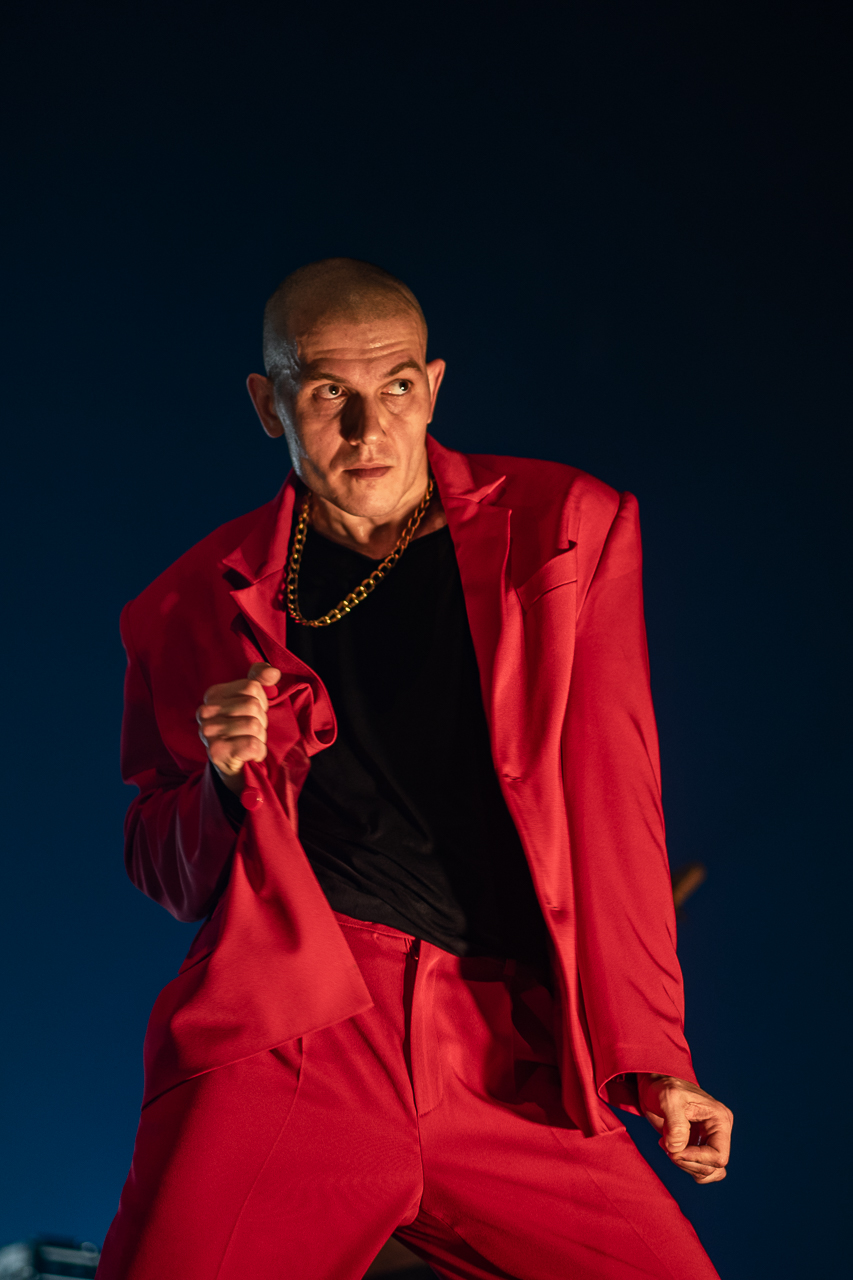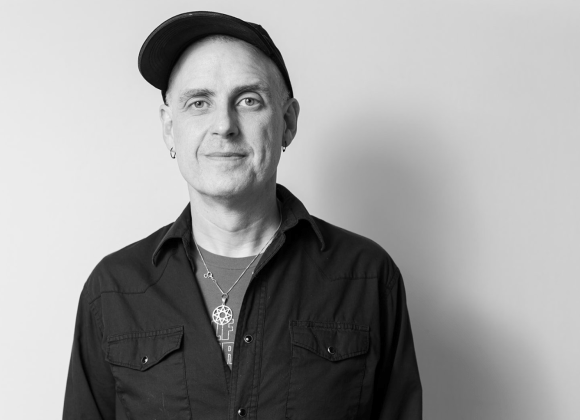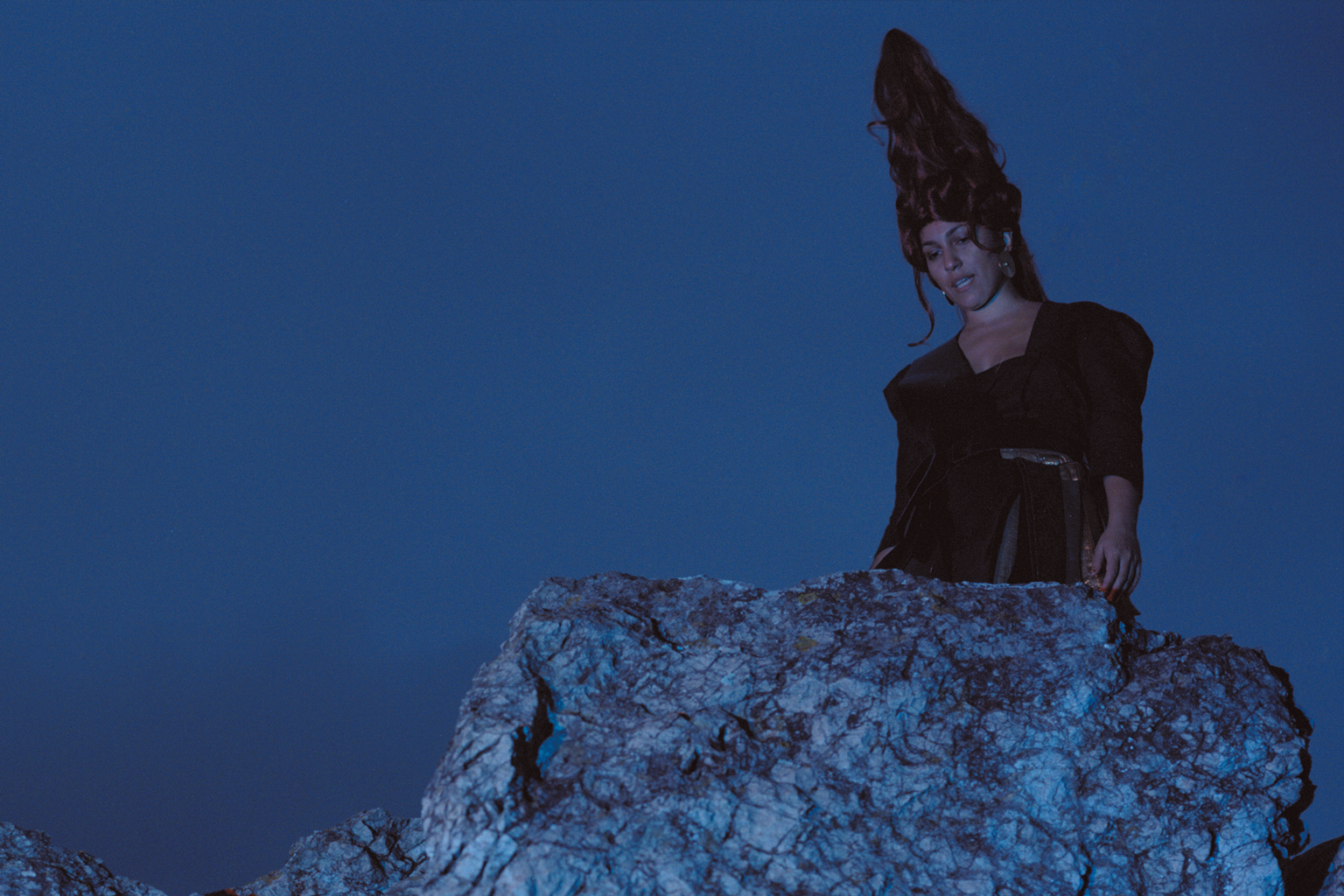If you go on the internet, you will notice that Shortparis is mainly spoken of in superlatives or, even better, that they fall short. The post-punk band from Saint Petersburg is regarded as the standard-bearer of the new avant-garde in Russia, as the act for which you buy a concert ticket blindly. It is irritating when such things are said, especially when the band themselves also indicate that they are ready for the bigger work. “We want to be in the game - and stay.”
Writing and photography by: Robbie van Zoggel
The commotion doesn't come completely out of the blue: in recent years Shortparis has already taken some firm steps in the Netherlands with shows in OCCII and OT301 and at festivals such as Valkhof and Welcome To The Village. Last November the third album, Thus the Steel Was Tempered (Так закалялась сталь) was released and the band played at Le Guess Who?, much to the frustration of the quintet on a stage far from the centrally located festival locations. Yet it is that performance that was described by various media as the best and most refreshing that could be seen at this edition of the Utrecht discovery festival.
It's a month after their show at Le Guess Who?. I have an appointment in Rennes with frontman Nikolay Komiagin, the day before he plays with Shortparis at the Trans Musicales showcase festival. It is almost midnight when we meet in the press room of Parc Expo, the main location of the festival. Disclaimer when shaking hands: Komiagin indicates that he likes to talk to me with the other band members and speaks on behalf of everyone in Russian. Drummer Pavel Lesnikov interprets into English.
“We have a strong tendency to constantly question what we are doing.”
The first evening is now in full swing. Trans Musicales is a prestigious festival: in the past, great artists such as Nirvana (1991), Björk (1993) and Daft Punk (1996) played their breakthrough show on French soil. Whether Shortparis will ever be mentioned in the same breath as these names is too early to say, but it can't be because of the place in the schedule: prime time on Friday in the largest hall of the festival (capacity: 8,000). Before the band drops by and can already imagine how their show will turn out for such a large, and especially new audience, let's go back to November 9, 2019, the acclaimed performance at Le Guess Who?.

Komiagin has indeed been given that it has been written so positively, but when I use the word 'sensational', the conclusion is that he actually finds this a difficult word. Thinking out loud, he tries to find a description that does more justice to the experience of that night in Utrecht. “The core, I think, is that everyone who has been there asks themselves whether what they heard and saw is real.” That sounds a bit like a hollow phrase, but that question touches on something universal as far as Komiagin is concerned. “In virtually any situation or event in life, you can ask yourself that question. The answer is not fixed, each time your image of what is real is slightly adjusted.” In fact, according to Komiagin, it is a constant search, an addictive process. The other band members nod. “Imagine: every time we go on stage again we need a bigger dose, and we assume the audience is dealing with the same 'problem'. We therefore have a strong tendency to constantly question what we are doing, we want to be in the game - and stay. We throw away old methods that no longer work so that we can always give ourselves and the audience a satisfying feeling.”
Komiagin doesn't have to look far for a healthy dose of real life: the streets of Saint Petersburg are an endless source of inspiration. Saint Petersburg is a city with beautiful facades but, if you take a look behind them, also with many social contradictions. This becomes apparent as soon as he closes the door of his apartment behind him - “with a children's hospital on one side of the street and a sauna right next to it, where fat men with fur hats and otherwise only a white towel slide around their waist. The contrasts, atmosphere and aesthetics of everyday life really appeal to me,” he observes in a report by Arte. He explains that with that look, he gets one step closer to who he is, and to a clearer idea of how he wants to manifest with the band. “Our starting point is: we want to make music that matches what we see happening around us. Our music is true to reality.”

The thirst for innovation is accompanied by more and more performances, tours abroad and larger stages. When I ask about their ambitions in that area, Komiagin says that they would like to grow, but at the same time they don't care how many people they perform for. A concert in a small club is just as interesting for the band as a concert in a stadium. The fans seem to think otherwise. “We did a lot of big shows in Russia last year and the reactions afterwards show that a lot of people think we were better when we played in smaller venues. It cannot discourage us from taking the step to performing in front of a larger audience. Sometimes we succeed, other times we screw up. It's also part of the process we're going through right now." One of the biggest performances to date was at Sportpaleis Joebilejny in Saint Petersburg. “It was a difficult show with many technical obstacles, but at the same time one of the most important moments in our existence. The situation actually brought us closer together, we were able to transcend ourselves. Afterwards we all knew for sure: we are ready for the whole world, we will not give up when the going gets really tough.”
“As a child I scorched ants with a magnifying glass. All my friends in the neighborhood did that.”
In addition to a rock-solid live reputation, Shortparis also stands out for making absurd and provocative video clips, with a lot of aggression and violence recently. An example is 'Thus the Steel was Tempered', the single from the last album of the same name. When you open it in YouTube, you first get a message: 'The following content has been identified by the YouTube community as inappropriate or offensive for some target groups.' We see a young soldier in an A Clockwork Orange-esque way totally derailed in a Russian training camp; after he leaves the camp and walks into the street, things go from bad to worse. After the release, there is an immediate outcry among Russian authorities, in part because the release of the video overlaps with the aftermath of a shooting. On October 25, 2019, while the band was filming the music video, Ramil Shamsutdinov shot and killed eight fellow soldiers at a Russian military base near the border with China. Komiagin: “We are very shocked that this could have happened. At the same time, this tragedy has caused us to be looked at with skewed eyes since the clip came out.” The criticism is that the band exposes that violence within the Russian armed forces is the order of the day. This while in recent years the army has succeeded in modernizing and eradicating the infamous dedovshchina, a very hard variant of hazing.
“First and foremost, we do not criticize the Russian army. We don't want to moralize, there is no right or wrong. The story we want to tell with the video is universal and we use basic principles that everyone can understand.” The band wants to show that violence does not end outside the walls of a camp, outside a political system. The germ of violence is potentially everywhere and with everyone. Komiagin reminisces about his childhood in Novokuznetsk, Siberia, to explain how violence is cultivated from an early age. “As a child I scorched ants with a magnifying glass. All my friends and kids in the neighborhood did that. It was normal, satisfying and it becomes addictive over time, in the same way performing can make me feel addictive.”
This political nature contrasts with their earlier work, where a more melodic and theatrical side of the band emerges. Half of the debut Daughters consists of French-language electropop, including the song 'Amsterdam', which refers explicitly to the classic by Jacques Brel.
Shortparis about the origin of the song 'Amsterdam' from their debut album Daughters. Video: Robbie van Zoggel.
Daughters was made when everyone in the band was in their mid-twenties and mostly concerned with personal issues. Komiagin struggled with his self-image: “My aversion to life in Novokuznetsk was great. I grew up with the prospect that as a man you would work hard for a lifetime in a factory and refused to fit into that picture. I especially had trouble with the fixed image of masculinity, how you should go through life as a man and as a woman.” His reaction to this: moving, or rather, fleeing to Saint Petersburg. “At the time I was convinced that it was mainly my task as an artist to resist that past life, to break free from old constructions.”
The fact that the band is now more socially engaged is due (however cliché) to getting older and wiser, but even more so because the quintet no longer feels ashamed when making such political statements. Leaving that shame behind is something that many Russian artists struggle with, according to Komiagin. “Now that that hurdle has been cleared, we feel the way is clear to open more registers, to make music that is much less polished and mannered.”
On February 7, 2020, Shortparis will play at Grauzone Festival in The Hague and February 22 at Peel Slowly and See in Leiden. Editor's note: this article was originally published in Dutch. Some quotes may have been altered in the translation.








